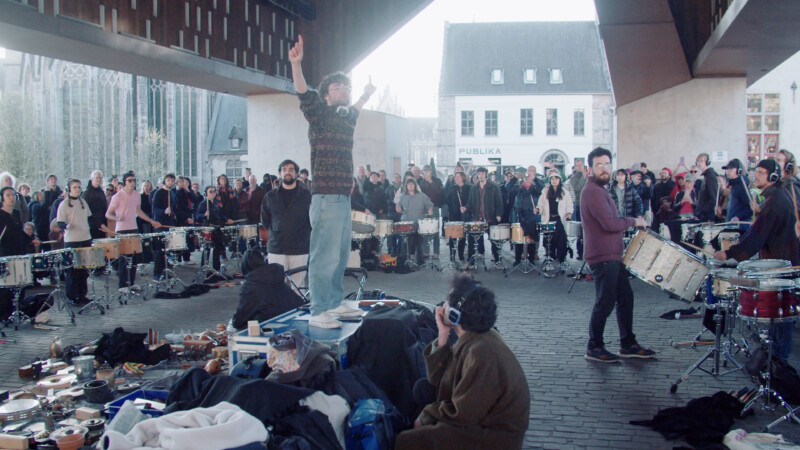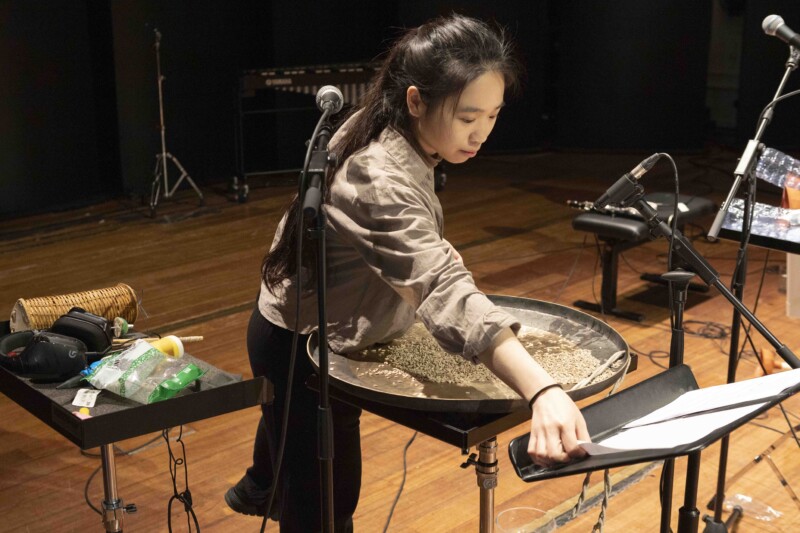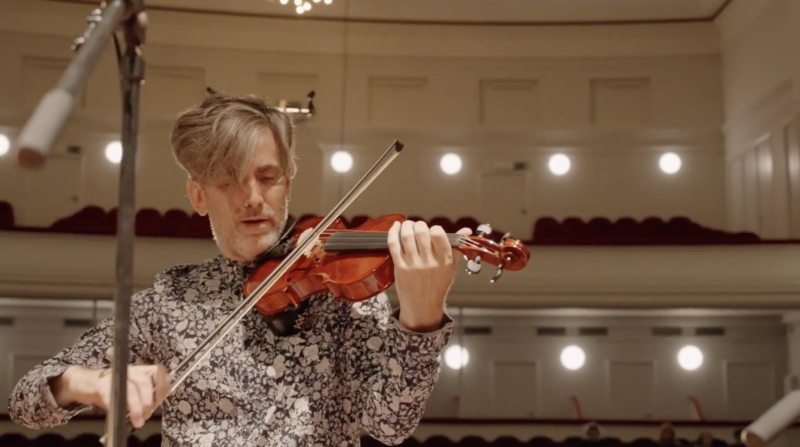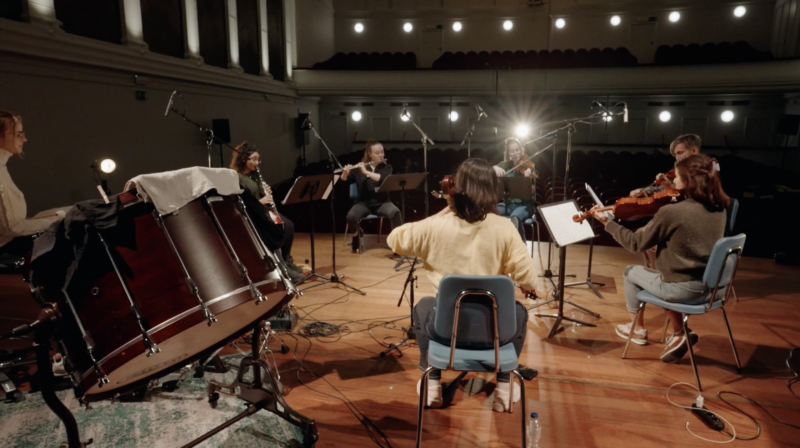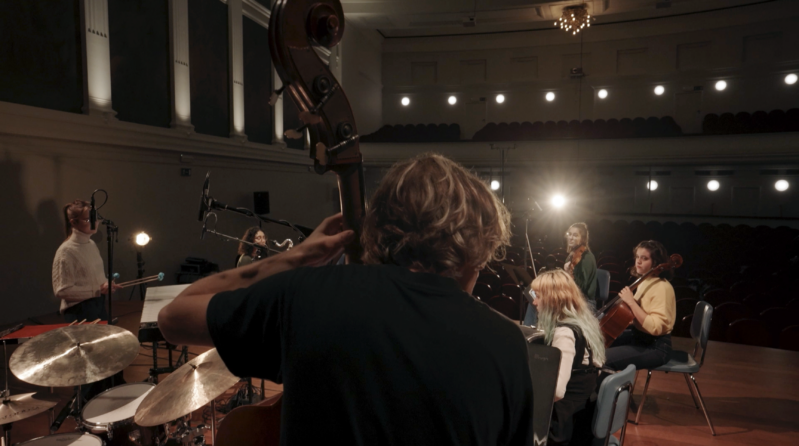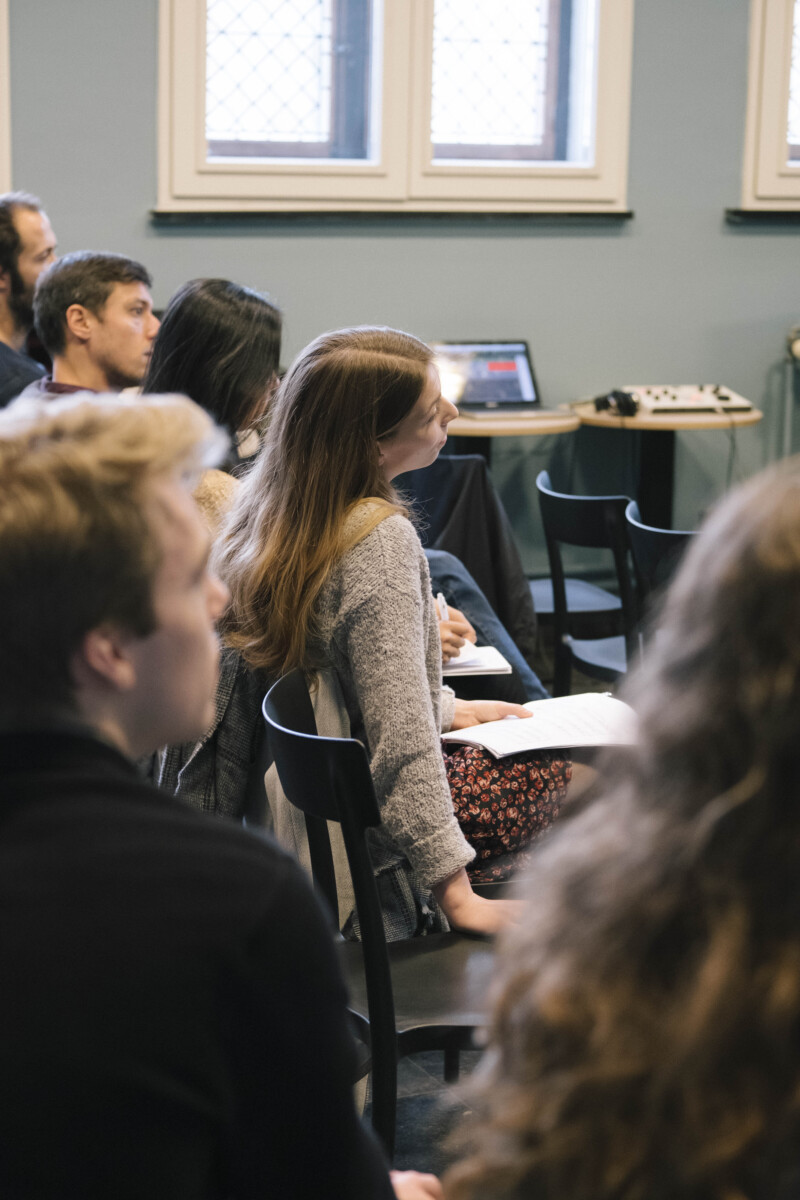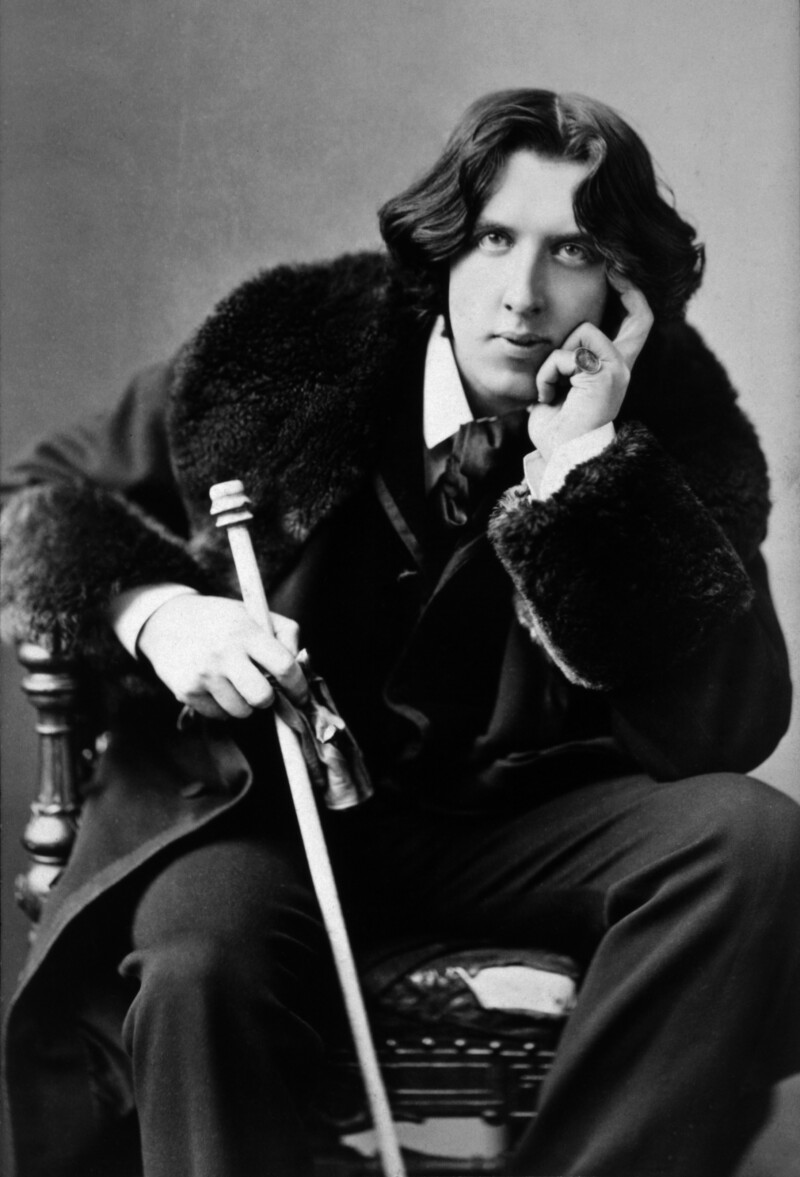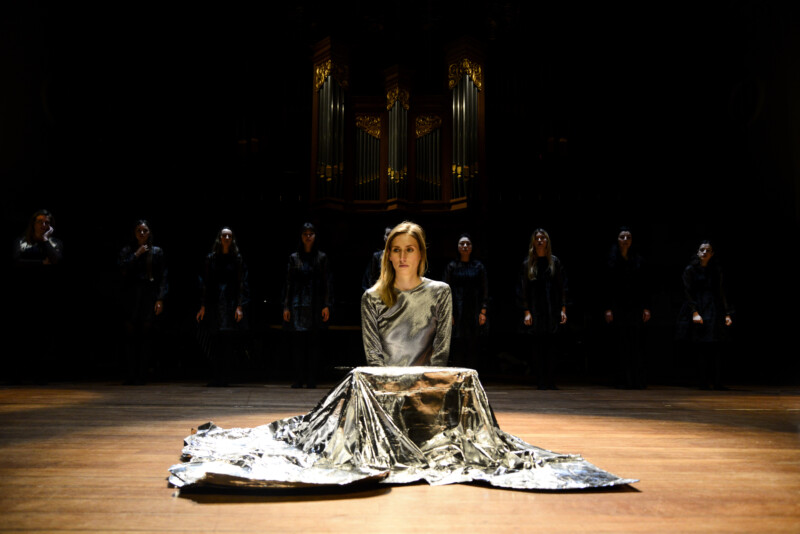composition
graduating option composing music
study path composition
3+2 years
English master
profile music programme
Man is constantly confronted with new stimuli that have never been perceived before and to which he must respond. This is precisely why man can never be not creative.
(interpretation of Arnold Gehlen, ‘Man: his nature and place in the world’).
Creativity at its core
The search for new, original solutions. That is perhaps the simplest definition of creativity. The music programme at KASK & Conservatorium puts this competence at the heart of the training of students to become performing musicians, composers, producers, builders, artists. Because we are training you to be the music makers of the future. With certainty, we can say about the future: it will be different from today.
Creativity is everywhere: in interpreting an existing piece of music, writing a composition, song or arrangement, dealing with your audience, communicating with fellow musicians and organisers, building a portfolio, developing a stimulating study method, searching for the right sound, honing a narrative,... In short: in forming your own unique and authentic artistic profile.
To achieve this, the curriculum of the music programme offers a broad and solid musical and theoretical basis, with plenty of room for self-chosen specialisation. You can specialise in a certain style (jazz, pop, classical, experimental, etc.) in a certain field (production, songwriting, film composition, contemporary performance, etc.) or choose to broaden your horizons by combining expertise, genres and disciplines. Moreover, thanks to collaborations with the other art programmes within KASK & Conservatorium, this can be done across different art forms.
In our educational organisation, we also provide the necessary time and room to develop creative skills. Four times per academic year, the teaching weeks give way to project weeks, where guest speakers are invited and masterclasses are organised, where we focus on interdisciplinary cooperation and co-creation, on internal or external project collaboration, or on deepening certain facets of musical practice.
Your artistic practice as a performing or creative musician, on your instrument or in the studio, in a group or individually, is always accompanied by critical reflection. Besides the necessary technical skills, you focus on your own artistic development. How does your work relate to that of others? Where do your strengths lie and how do you best develop them? In applied theoretical subjects such as ear training, rhythm, music analysis and harmony, you will learn the necessary basic competences. General education like philosophy, for instance, creates a broader frame of reference. In your artistic practice, everything eventually comes together and you learn to place yourself within that broader context.
The music programme strives for broad employability in the professional field. During your studies, you will have personal contact with many people in the broad sector: first and foremost, your fellow students and teachers from all the programmes at our school, but also renowned guest speakers, programmers, visiting ensembles and bands in our MIRY Concert Hall and Club Telex, and contacts you get to know during internships or international exchanges. This is how we help you build your network, with Ghent, the UNESCO Creative City of Music, as your springboard.
read more about composition
Inventor of the still unimaginable or guardian of tradition: as a creator of concert, theatre and film music, you pursue an authentic and unique experience for the audience. This search for beauty starts from the refusal of habit, as Helmut Lachenmann suggested. This implies fundamentally questioning the entire apparatus of music creation and presentation, including the associated social conditions: what is the context, for which audience, which instrumentation,...?
Whatever his aesthetic or ideological choices, every composer wants to penetrate the medium of music in order to rediscover it and share the result with the world.
How do we do this?
Artistic practice
This is the core of your programme. Under the careful guidance of experienced and leading artistic practice teachers with diverse areas of expertise, you continuously build musical and creative mastery. They, together with the theoretical mentors, also help you to reflect critically on your practice, the oeuvre you are working on, the field of work you are aiming for. This is how you systematically build your portfolio, in which, sometimes intuitively and sometimes systematically, you forge an authentic artistic personality, aware of your qualities and working points.
Supporting practices
In the supporting practice subjects, you acquire competences that can inspire your artistic practice. Keyboard practice, instrumentation, orchestration, sound research, but also contemporary techniques such as sound realisation and live electronics are part of your creative tools to explore old and new artistic paths.
A solid theoretical basis
Ear and rhythm training, harmony theory, counterpoint, music analysis and history form an indispensable basis for your artistic practice. Combined with general cultural-theoretical knowledge, they provide you with the necessary frame of reference to stand in practice as a critical and informed musician.
A personalised curriculum
The curriculum offers plenty of room for self-chosen specialisation, for deepening and widening your artistic practice. Already from the second bachelor year, you get plenty of opportunities to choose minors and later, specialisations. This can be close to your own practice, e.g. with a minor in jazz and pop harmony, virtual orchestration or electronic musical instrument making, and with specialisations such as film composition, writing or composition for games. If your strength and interest lies in broadening your horizon, you can spice up your music practice with experience in other art programmes at our school, e.g. media art, photography or installation art.
Project-based education
During 4 weeks in the academic year, we pause the regular class schedule to work out an artistic project together, to delve into a particular facet of music practice, or to dialogue and co-create with other artists. Here we also address the necessary professional competences, through critical reflection on the concept, the creation process and the intended result.
Artistic research
Every artistic production, from music compositions to music recordings and concerts, is a journey of discovery that involves some form of artistic research. In an academic music programme, this takes concrete form in an artistic research project, which is closely linked to your personal artistic practice and your portfolio. Your thesis concludes your master's programme, and at the same time marks the beginning of your quest as a professional musician, with the necessary knowledge and skills to navigate.
study programme
* vanaf juni raadpleegbaar op hogent.be/studiefiches.
enrolment & tests
how do you register for the bachelor's degree?
see the dates and assignments for the test
how do you register for the master's degree?
see the dates and assignments for the test
If you want to apply for an academic bachelor's, you must first pass an artistic admission test. To enter the master's programme, you will take part in an orientation test. These are organised several times per academic year.
english master
In addition to a Dutch-language master, this study path also has a fully English-language counterpart. Every academic year, dozens of foreign students start in the English master's at KASK & Conservatorium.
There are no differences in curricula, competencies, learning outcomes or organization between the English-language programmes and their Dutch-language counterparts. English-speaking candidates holding a master’s degree in music can also go in for the advanced master contemporary music or one of our postgraduate programmes.
Don’t hesitate to contact the study and learning track counsellors with your questions.
quality assurance
KASK & Conservatorium's programme in music has been assessed against the internationally recognised standards of MusiQuE in 2022.
credits
- –
- –
- Roel Vanstiphout, Graduation 2021, photo: Benina Hu







